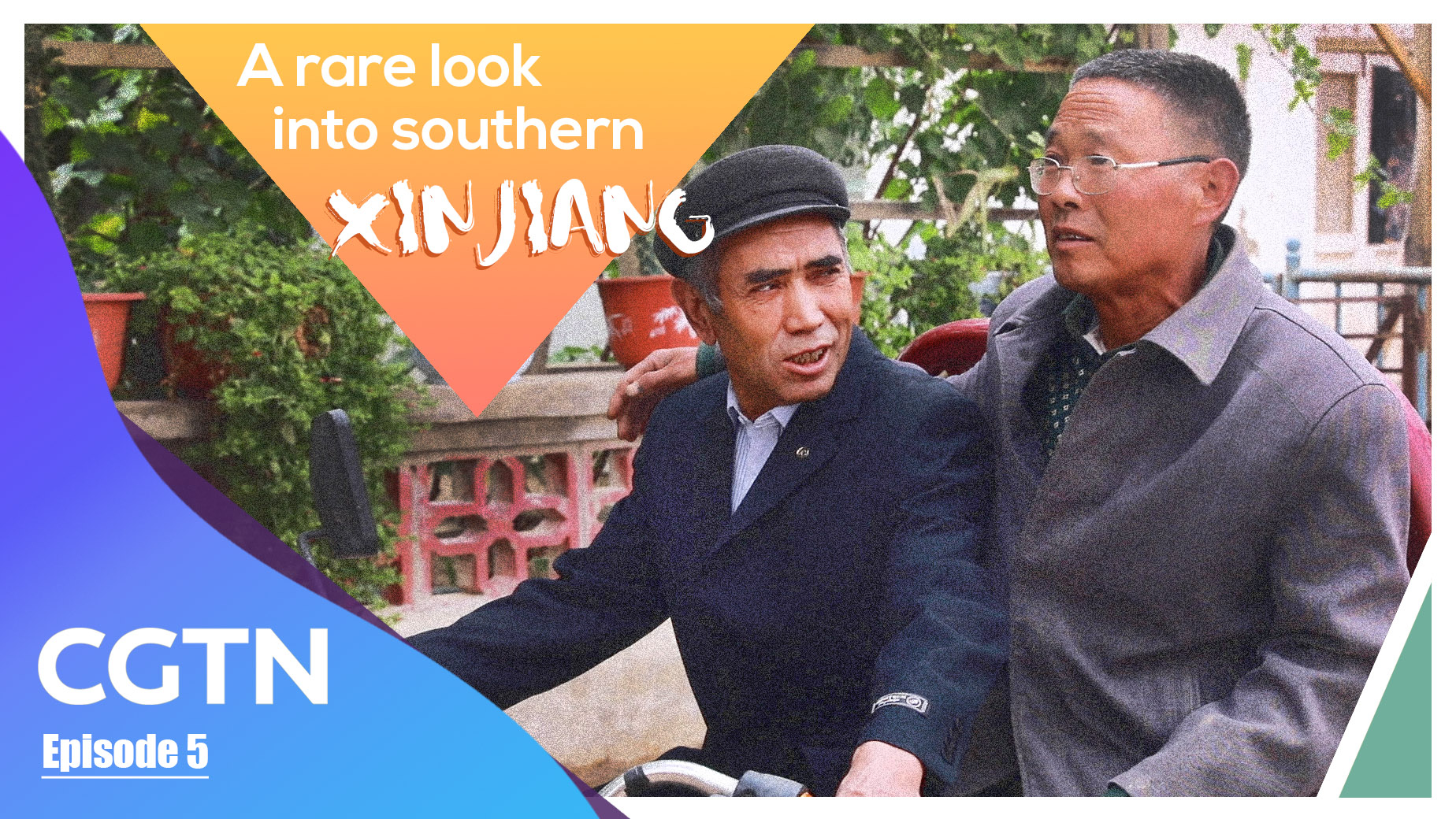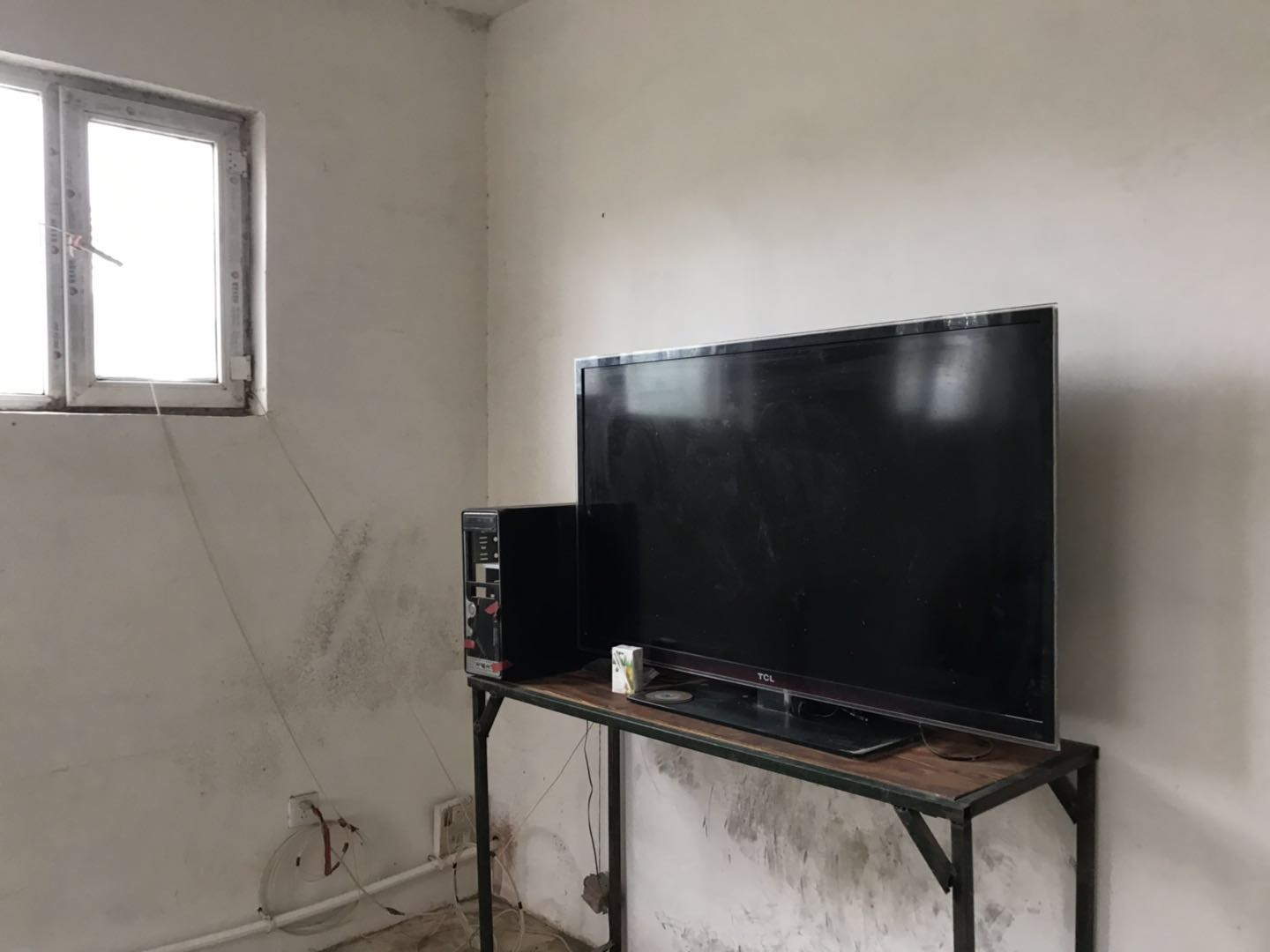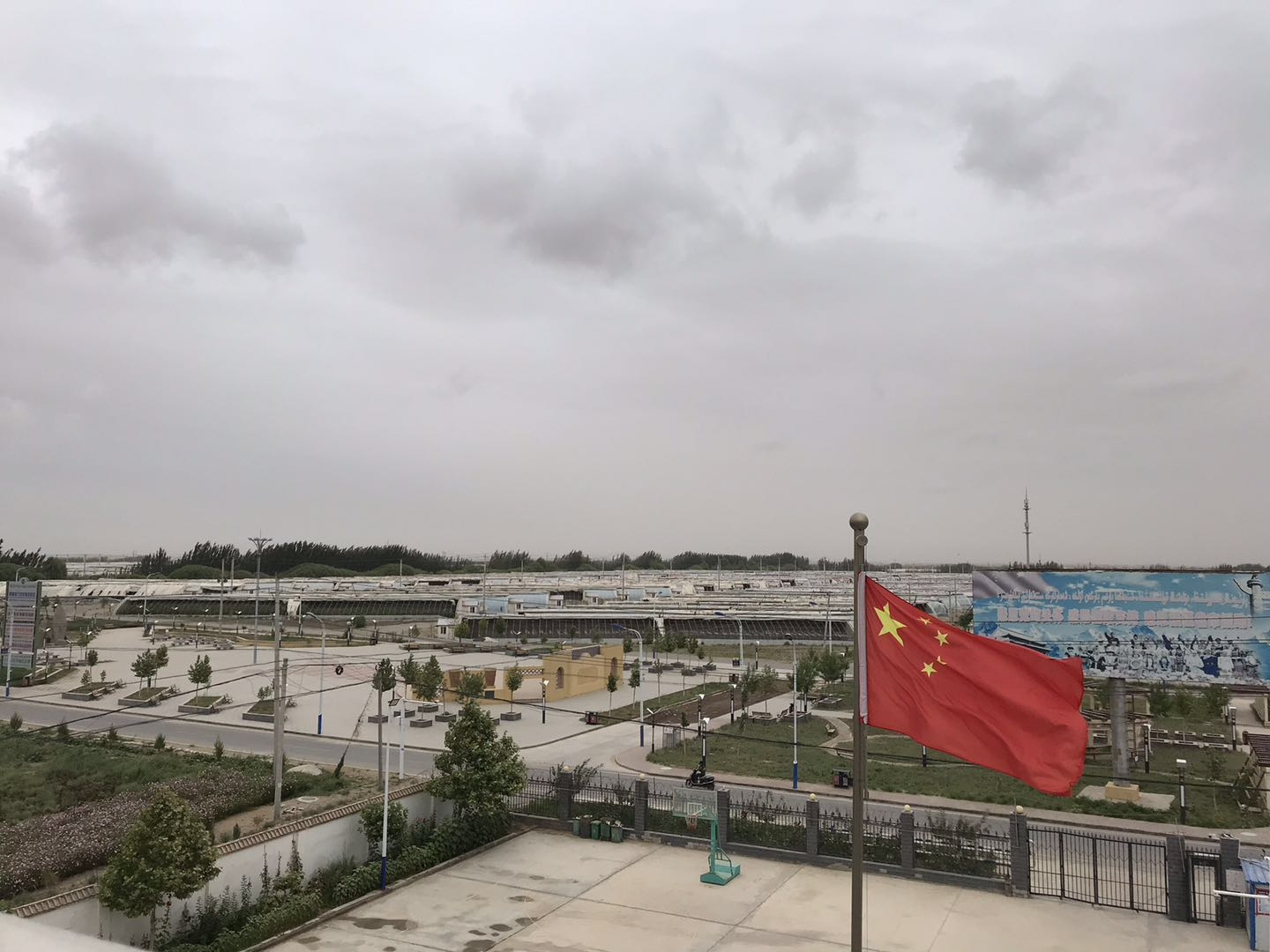

For a good part of the year, the sky above Hotan is painted in a haunting yellow as the sand blows relentlessly from the north, covering almost everything in dry dust. The city's geographic proximity to the Taklamakan Desert has proven to be an enormous challenge for local officials looking to improve its economy. Yet, the battle with nature continues.
In 2014, the local government began construction of Unity New Village with an investment of 1.7 billion yuan (or 245 million U.S. dollars). This is the first part of a larger plan aimed at turning swathes of desert in northwest China into farmland capable of producing crops and raising cattle.
As our bus made a turn after hours of driving on a long stretch of desert road, rows of houses with red roofs began to emerge. We stopped in front of large steel doors that lead to the home of 59-year-old Fan Xiaokun for the past five years. Nowadays, his main duty consists of helping feed and herd the sheep. He ushered us in and walked slowly with the help of a cane.

The television in Fan's bedroom /CGTN Photo
Fan told us that an episode of cerebral infarction left him limp and unable to do any rigorous activity to bring in a sustainable income. Since then, he has relied on the help of his Uygur neighbor Erkin, who shared food almost daily with Fan.
According to Fan, Erkin almost contacted emergency services after he failed to answer the door one morning. The concerned neighbor thought Fan's condition had worsened and rendered him unconscious. After repeatedly knocking, he scaled the wall and broke into the house only to discover that Fan was sound asleep.
What Fan couldn't repay in physical strength, he made up for this in sound advice. As a plant enthusiast, he offers tips to Erkin in growing a variety of vegetables. During lunch, Erkin brought us to his kitchen where his wife was chopping up peppers grown in his garden with Fan's help.

An overview of Unity New Village in Hotan /CGTN Photo
"In Yulong Kashi Town where we used to live, we didn't have any land and all of the family members were crammed in one house. There was no factory and no market," Erkin said as he looked into the distance. "Now that I'm old, I want to live here and grow vegetables and herd sheep."
In the early afternoon, Fan and Erkin took us to a greenhouse which the government built to help residents boost their income. Figs, pepper and chives are just some of the crops that have adapted to the Hotan soil. One government official explained that converting sand into farmable soil took a great deal of effort, from fertilization to planting poplars that would reduce the effect of dust storms.
Overlooking the village from the rooftop of a three-story administrative building, we could hardly imagine that an entire village with sound facilities including kindergartens, schools and hospitals had been raised on what was only a sand dune five years ago.

Copyright © 2018 CGTN. Beijing ICP prepared NO.16065310-3
Copyright © 2018 CGTN. Beijing ICP prepared NO.16065310-3